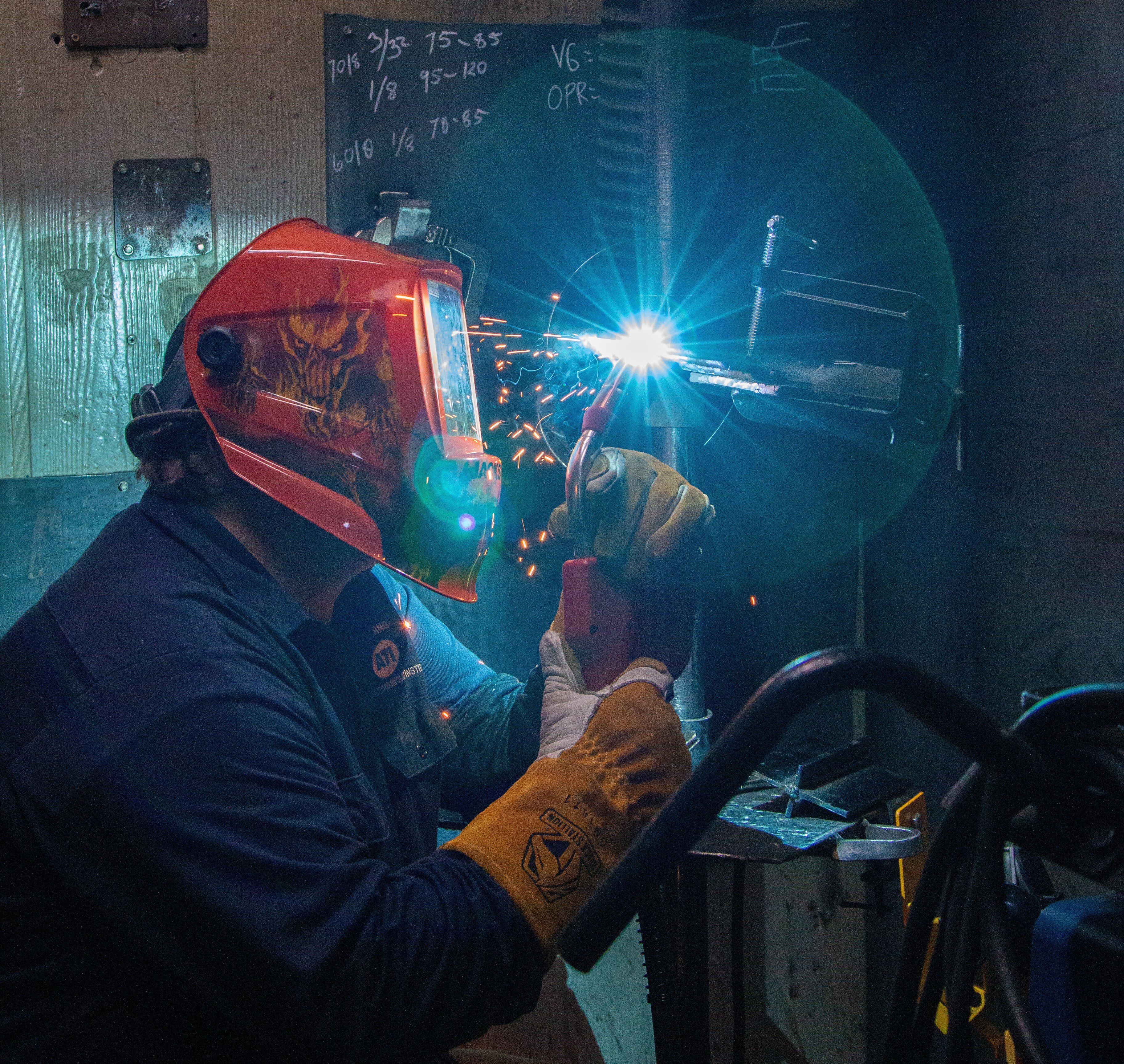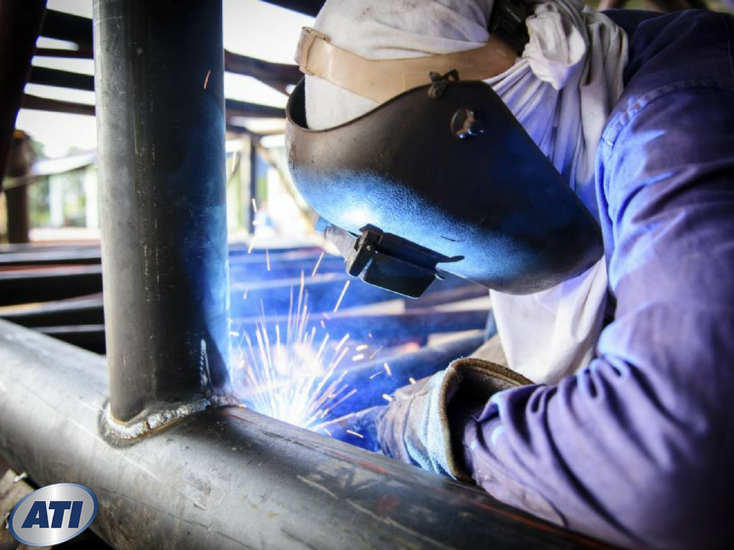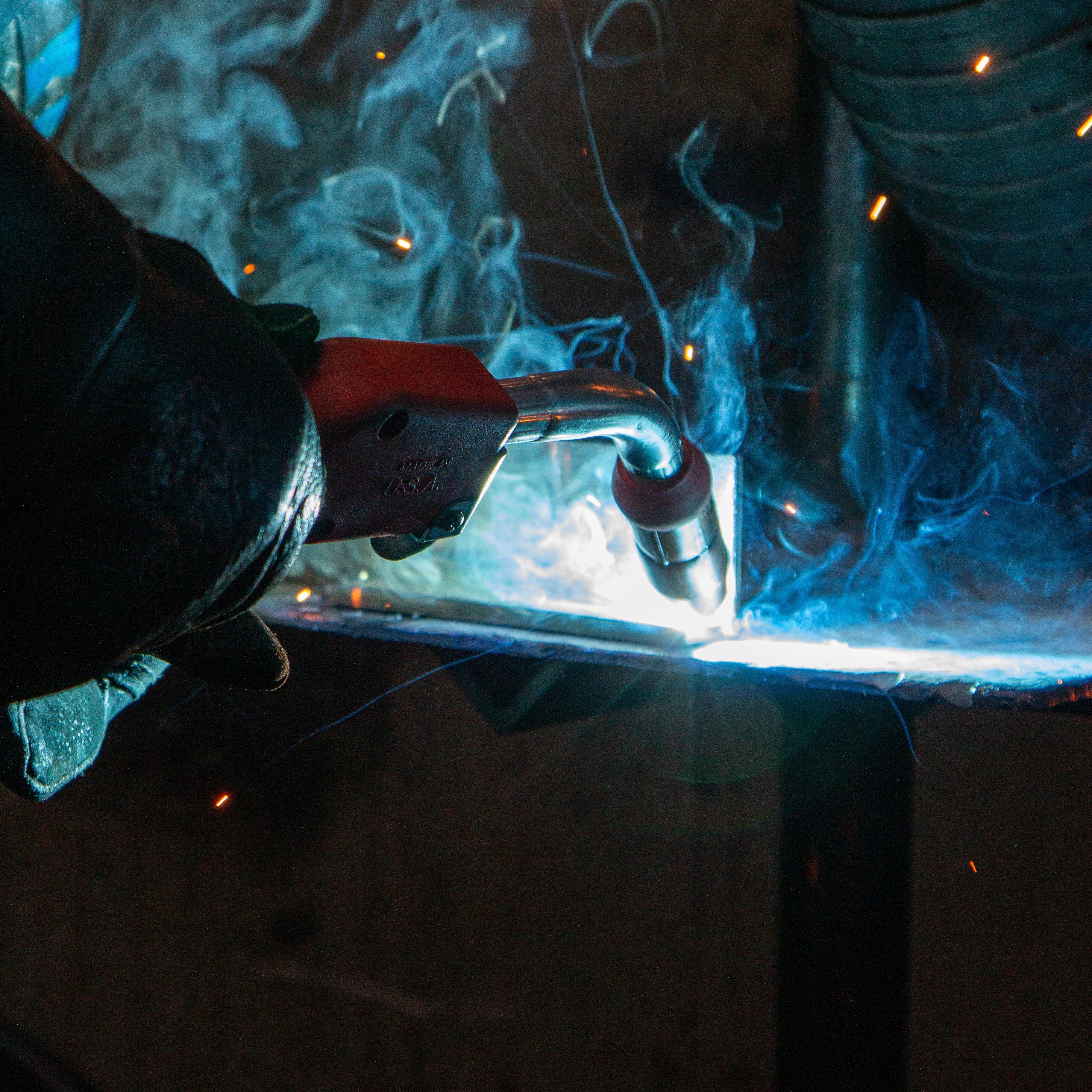Five Red Hot Reasons to Become a Pipe Welder
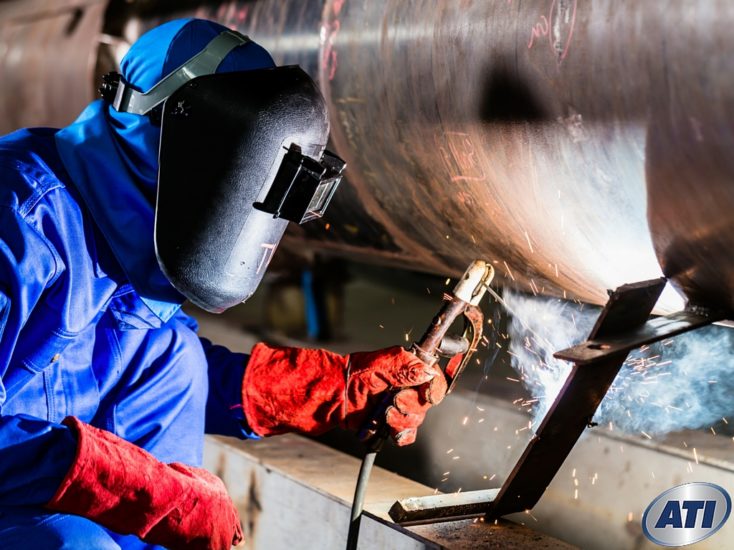
Throughout our modern industrial history, pipe welders have been in, and will most likely always be, in demand. Due to the dynamic nature of metal pipe, it is used for several applications, such as:
- Oil and gas pipelines
- Scaffolding
- Structural applications such as fencing and handrails
- Water and sewage
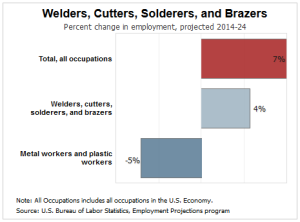 If you’re looking to pursue a career in pipe welding, you should know that the outlook for employment for welders, in general, looks positive. According to the Bureau of Labor Statistics, employment for welders, cutters, solderers, and brazers is expected to grow 4% between 2014 and 2024. They also state, “Job prospects should be good for welders trained in the latest technologies.”
If you’re looking to pursue a career in pipe welding, you should know that the outlook for employment for welders, in general, looks positive. According to the Bureau of Labor Statistics, employment for welders, cutters, solderers, and brazers is expected to grow 4% between 2014 and 2024. They also state, “Job prospects should be good for welders trained in the latest technologies.”
Steady employment is important, but it’s not the only factor you should consider if you are thinking about entering this field. Here are 5 things you should think about if you’re thinking about becoming a pipe welder:
1. If You Can Weld Pipe, You Can Weld Just About Anything
For many welders, pipe welding, in particular, can be a bit more challenging. For example, maintaining the travel angle will become more difficult depending on the size and material of the pipe. The travel angle changes as the diameter of the pipe changes. Pipes are often located in difficult to get to places, and pipe welding, in general, requires relatively more skill than other welding subsets.
If you were to become proficient at pipe welding, you would likely be a much better-rounded welder. In general, if you ever choose to venture outside of the specialty.
2. If You Like to Travel, Pipe Welding Is a Great Career Choice
Pipe welders frequently move around to different locations across the United States. Some of these areas include Texas, North Dakota, Louisiana, Alaska, California, and New Mexico. These locations are abundant with pipe welding jobs, mainly due to the oil and energy industries.
There are also employment opportunities outside of the United States, such as Germany, parts of Africa, South America and plenty of other areas, worldwide. If you enjoy traveling outside of your state, pipe welding can be an excellent career path.
3. Great Job Security and Wages for Pipeline Welders
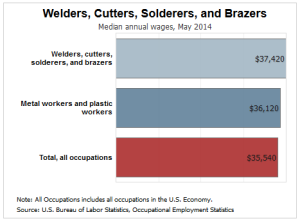 Adequately skilled, trained pipe welders aren’t likely to be unemployed. As stated earlier, the Bureau of Labor Statistics mentions that welders with up to date training are expected to be a hot commodity for years to come. According to the BLS, the median income for welders is $37,420.
Adequately skilled, trained pipe welders aren’t likely to be unemployed. As stated earlier, the Bureau of Labor Statistics mentions that welders with up to date training are expected to be a hot commodity for years to come. According to the BLS, the median income for welders is $37,420.
However, the average salaries listed drastically increases for pipeline welders to, at the least, $60,650 in 2015. That’s a $24,080 difference in favor for pipeline welding. Coupled with the generally positive outlook for welding, and manufacturing jobs in general, becoming a skilled pipe welder wouldn’t be a bad decision.
4. Opportunities to Work in Many Different Industries
When you think about pipe welding, you might only think about the oil and gas industries. While oil and gas pipelines provide a decent amount of employment opportunities, they definitely aren’t the only sectors who need skilled pipe welders. Steel pipes are used in industrial scaffolding and many water treatment plants and sewer systems need capable welders to maintain their pipes.
Gaining insight into many different industries and sectors can open up many doors, even ones you might not think exist. Being able to read blueprints, being able to follow safety procedures, and having knowledge of many different fields is attractive to employers in many different industries.
5. A Flexible, Long Term Career Path
The ongoing demand for pipe welders isn’t likely to dissipate any time in the near future. You don’t have to work for someone else, though. You could choose to freelance, or start your own business. Freelancing would entail you essentially bidding on work that employers need to get done. By starting your own business, clients would instead be bidding on you for your expertise.
These options might not be ideal for every welder. But, if you’re skilled enough at the trade, you may flourish by taking your career into your own hands.
Train to Become a Welder
A long-term, rewarding career begins with the right training program. You should make sure that the program you chose meets safety and industry standards. If you’re considering a career in pipe welding, contact Advanced Technology Institute for information about earning a diploma in Maritime Welding. Contact us at 800-468-1093 or request information today.
It’s official!! Congratulations #ATIGRAD #ATI pic.twitter.com/CepAZh1QfV
— ATI (@AdvTechInst) August 15, 2015
DISCLAIMER – Advanced Technology Institute (ATI) makes no claim, warranty or guarantee as to actual employability or earning potential to current, past or future students or graduates of any educational program offered. The Advanced Technology Institute website is published for informational purposes only. Every effort is made to ensure the accuracy of information contained on the AUTO.edu domain; however, no warranty of accuracy is made. No contractual rights, either expressed or implied, are created by its content.
For more information about Advanced Technology Institute or any of our programs click here: http://www.auto.edu/ or http://ow.ly/VoydP.
Industry Knowledge
Welcome to the Advanced Technology Institute's Blog, your resource for industry insights and discussions on technologies shaping the future of automotive, heavy vehicle, hvac, welding, and other related career paths.
Explore how ATI's curriculum and hands-on learning opportunities can propel your career in the tech-driven world.

